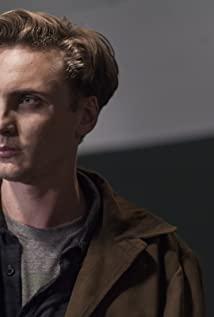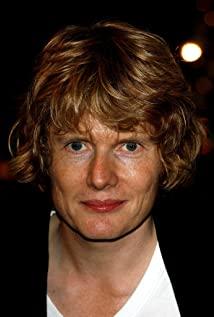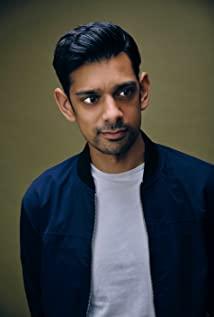I didn't watch TV series, but I finished watching eight episodes of this season. I found that a two or three-hour movie can only be a composition, not a literature like a TV series!
Although the story of the series "The Demon Hunter" is not top-notch, it is of great research value. First of all, it lies in its "network structure". The three protagonists of "The Demon Hunter"-Demon Hunter Geralt, Sorceress Ye Naifah, and Princess Xili.
They have their own lives. Geralt is born with mutation genes that are enough to become a demon hunter. When he was a child, he was abandoned by his mother and was taken in and trained to become a demon hunter. He was used to saving a girl from a monster before. Be a "hero". In order to survive, he was a bounty hunter and hunted monsters. But in fact, he didn’t kill innocent people indiscriminately, because his mother taught him “to live by himself and let others live” (to put it bluntly, it means to clarify the coexistence relationship between humans and other ethnic groups. In Western stories, there are dwarves, elves, and monsters. , Warlocks and humans), so as long as they don’t threaten humans and are wise, he will not kill indiscriminately. Even if it caused suspicion and framing for the people, he still has no regrets, because he feels that because humans treat themselves as aliens and hurt and slaughter humans, he is really a monster. So, he saved the shofar, and was pardoned by the elves; he saved the hedgehog, and was rewarded by the "accidental law" (as a demon hunter, he can’t have feelings. The warlock Ye Naifa became attached, and Ye Naifa was unable to have children, so according to the law of accident-to get the other party's "unknown, possessed" return, he got Princess Xili as a daughter); he saved the golden dragon (the king offered a reward, Many armies want to kill Jinlong), I guess Jinlong should come to save him. This is his separate story!
And Ye Naifa, because she is a descendant of elves and humans, she was born deformed, looks ugly, and was humiliated and despised. Fortunately, he was bought by the principal of the Warlock School and became a special student. Under the "extreme promotion education (the eliminated ones would become eels and put them in the water)", he not only improved himself, but also received extreme plastic surgery. Surgery, fertility is exchanged for a beautiful appearance. Later, because of failure in performing the mission (the king’s bloodline could not be protected, the princess and princess died), he wanted to become stronger and wanted to obtain his own children. Because she wanted to be strong, she wanted to trap "Di Jing", absorb its powerful magic power, and make herself stronger, and Geralt feared that she could not control the powerful power to die, so she rushed to make a wish to get deep-rooted with her. The two of them were predestined before, and now they bind their lives together.
As for Princess Xili, because of the law of accident, she was born as Geralt’s adopted daughter, and her life is closely related to Geralt; not only that, she possesses the "Elder’s Blood" and is the source warlock-Laura. · The blood of Doren. And her power is very strong, she is obviously the next generation stronger protagonist.
These three are actually the lives and hopes of the people at the bottom, just like the mysterious notes left by Liu Bang in history. Obviously he is a humble identity, but he must have the blood of aristocrats and even gods! This means that the rationality and legitimacy of "rise" will naturally become an inevitability. And the combination of Geralt, who is constantly improving his abilities by training and actual combat, and Ye Naifa, the sorcerer who is constantly improving his desires by cruel education and sacrifice, plus a child, it is obvious that it is like an ordinary family, parents for a lifetime. Efforts, although it is impossible to get ahead, but the ability to cultivate, but has the ability to create a "higher, faster and stronger" next generation. And this next generation is the hope of becoming a new generation of "Masters". Although many people of our time would say "class consolidation", it is exactly what Chu Yin mentioned in his speech: the first generation of Chinese immigrants were piglets, the second generation opened restaurants, the third generation was an engineer, and the fourth generation was a councillor. Every successful person needs accumulation. One generation fails, only two generations, and two generations fail to achieve three generations... Think about how many hall-level figures come from this way.
Another interesting aspect of "The Demon Hunter" is the "law of accident." When we help others, what are the best rewards and gifts we get? We may not have considered, or "return on benefits" that we don't need to consider. But in fact, rather than a clear return, it is better to have an unexpected surprise-"What you don't know, what you have", because you have what you have, so you can ask for it in return. Because you don't know, the return may be beyond imagination, and again It happens to be an arrangement of fate. In TV dramas, the clever plot arrangement has always been based on the screenwriter’s "accidental law" (no matter what, it cannot be based on the audience's first idea, as far as possible to an unknown direction). We always feel that we have been able to see the beginning and come to the end, but in fact this play always uses the "law of accident" as an example. For example, why did the princess choose a strange hedgehog rider? Why would the prince (the queen's husband) support this marriage? As a demon hunter, why didn't Geralt kill the hedgehog, but help him stop the queen's killing? It happens to be the law of accidents, and this method is not only a feature of this play, but also a feature that all stories have been working hard on.
We need familiar stories, because this is our world, we can understand; we need unexpected stories, because this is a fictional world, we need surprises!
View more about The Witcher reviews











